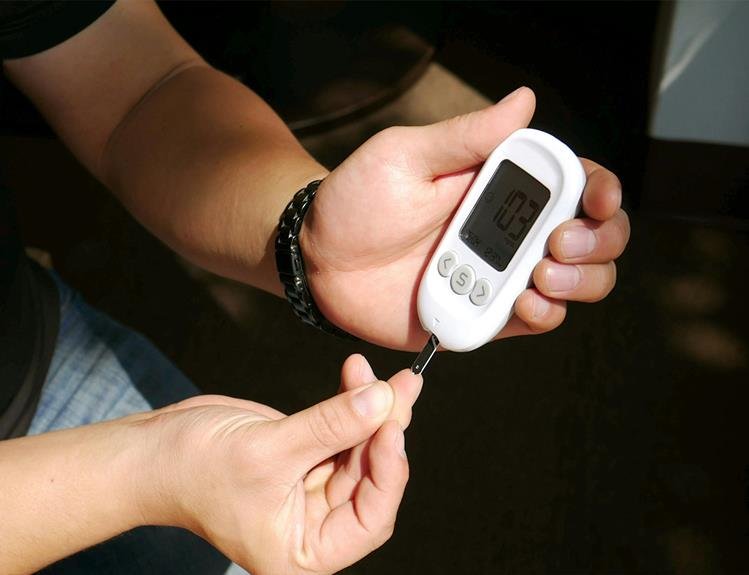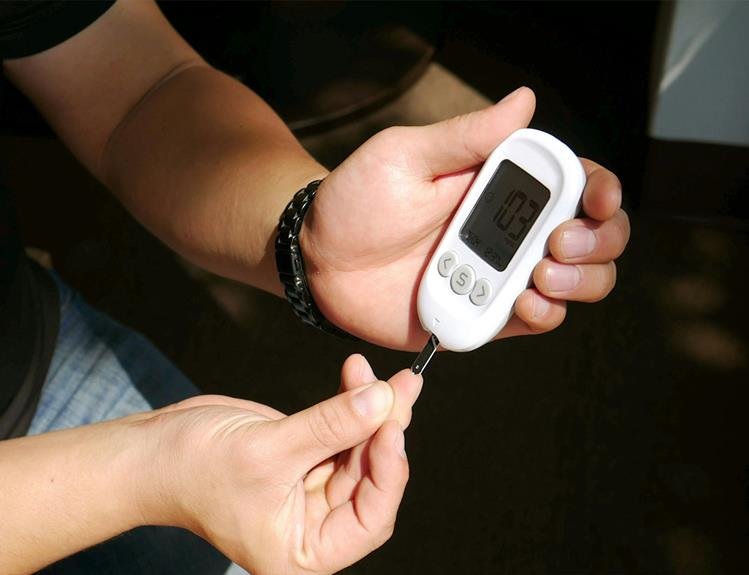5 Key Ways to Lower Your Risk of Amputation When Living With Diabetes
By now, you're familiar with the importance of managing your diabetes effectively. But have you considered the specific steps crucial to safeguarding your feet and lower limbs?
These five key strategies could be the difference between maintaining your mobility and facing the risk of amputation. From regular foot examinations to a team-based approach, each aspect plays a significant role in your overall diabetic care.
Let's delve into these essential practices to ensure you're equipped with the knowledge to protect yourself.
Regular Foot Examinations
Regularly examine your feet to lower the risk of amputation associated with diabetes. Your feet are particularly vulnerable when you have diabetes due to potential nerve damage and reduced blood flow.
By inspecting your feet daily, you can catch any issues early, such as cuts, sores, or blisters that could lead to serious infections. Use a mirror if needed to check the bottoms of your feet and between your toes. Ensure your toenails are trimmed straight across to prevent ingrown nails.
Moisturize your feet regularly but avoid between the toes to prevent fungal growth. Always wear well-fitting shoes and clean, dry socks to protect your feet. If you notice any problems during your foot examinations, contact your healthcare provider promptly for further evaluation.
Taking the time for these regular foot checks can make a significant difference in preventing complications and reducing the risk of amputation in the long run.
Blood Sugar Control
To effectively lower the risk of amputation with diabetes, it's crucial to maintain consistent control of your blood sugar levels. Keeping your blood sugar within the target range recommended by your healthcare provider is essential in preventing complications such as nerve damage and poor circulation, which can lead to foot ulcers and, ultimately, the need for amputation.
Consistently monitoring your blood sugar levels through regular testing is key. By tracking your levels throughout the day and making adjustments as needed, you can better manage your diabetes and reduce the risk of serious foot complications. Remember to follow your healthcare provider's guidance on medication, diet, and exercise to help keep your blood sugar levels stable.
Additionally, paying attention to how certain foods, activities, and stress levels affect your blood sugar can empower you to make informed choices that support better control. By actively managing your blood sugar, you're taking proactive steps to safeguard your foot health and lower the risk of amputation associated with diabetes.
Proper Wound Care
Maintaining proper wound care is essential for individuals with diabetes to prevent complications that may lead to amputation. Due to reduced blood flow and nerve damage associated with diabetes, wounds can take longer to heal and are more prone to infections.
To lower your risk of amputation, it's crucial to inspect your feet daily for any cuts, blisters, or sores. Cleanse wounds with mild soap and water, apply an antibiotic ointment, and cover them with a sterile bandage. Avoid walking barefoot and opt for comfortable, well-fitting shoes to prevent rubbing and potential injuries.
If you notice any signs of infection such as redness, warmth, swelling, or drainage, seek medical attention promptly. Additionally, managing your blood sugar levels effectively can promote better wound healing. Remember, proactive wound care is a key component in safeguarding yourself against complications that could result in amputation.
Healthy Lifestyle Habits
Embracing healthy lifestyle habits is vital for individuals with diabetes to reduce the risk of complications such as amputation. Managing your weight through a balanced diet and regular exercise is crucial. Aim for a diet rich in fruits, vegetables, whole grains, lean proteins, and healthy fats. Monitoring your blood sugar levels consistently can help you make informed decisions about your food choices. Engaging in physical activity not only helps with weight management but also improves circulation and overall health. Incorporate activities like walking, swimming, or cycling into your routine.
Quitting smoking is another essential step in lowering your risk of amputation. Smoking restricts blood flow, making it harder for your body to heal wounds. It also increases the likelihood of developing cardiovascular issues, which can further complicate diabetes. Make use of resources and support systems to help you quit successfully.
Prioritize getting enough sleep and managing stress levels. Lack of sleep and high stress can negatively impact your blood sugar levels and overall health. Practice relaxation techniques, mindfulness, or hobbies that bring you joy to help manage stress. Adequate rest and stress management are key components of a healthy lifestyle for individuals with diabetes.
Team-Based Approach
Lowering your risk of amputation with diabetes involves implementing a team-based approach to your healthcare management. By assembling a specialized team consisting of healthcare professionals such as endocrinologists, podiatrists, dietitians, and diabetes educators, you can receive comprehensive care tailored to your specific needs.
Each team member plays a crucial role in monitoring your condition, providing education on diabetes management, and offering support throughout your journey. Your endocrinologist will oversee your diabetes treatment plan, including medication management and blood sugar control. Podiatrists will focus on foot care, conducting regular exams to prevent complications that could lead to amputation. Dietitians will help you develop a healthy eating plan to manage your blood sugar levels effectively. Diabetes educators will empower you with the knowledge and skills needed to make informed decisions about your health.
Frequently Asked Questions
Are There Any Specific Exercises or Physical Activities That Can Help Prevent Amputation in Individuals With Diabetes?
Regular physical activity, such as walking, swimming, and strength training, can help prevent amputation in individuals with diabetes. Consistent exercise improves circulation, controls blood sugar levels, and promotes overall health for better outcomes.
How Often Should Individuals With Diabetes Get Their Feet Checked by a Healthcare Professional if They Have No Known Foot Issues?
You should get your feet checked by a healthcare professional at least once a year if you have no known foot issues. Regular exams can catch problems early and help prevent serious complications, especially when living with diabetes.
Are There Any Specific Dietary Recommendations to Help Lower the Risk of Amputation in People With Diabetes?
To lower your risk of amputation with diabetes, focus on a balanced diet rich in fruits, vegetables, whole grains, and lean proteins. Limit sugary snacks and refined carbs. Stay hydrated, manage portion sizes, and work with your healthcare team for personalized guidance.
Can Wearing Specific Types of Footwear or Orthotic Devices Help Prevent Foot Complications in Individuals With Diabetes?
Wearing proper footwear and orthotic devices can significantly reduce foot complications in diabetes. Choose supportive shoes and inserts to protect your feet. These simple steps can make a big difference in preventing amputations and maintaining foot health.
How Important Is It for Individuals With Diabetes to Quit Smoking in Order to Reduce Their Risk of Amputation?
Quitting smoking is crucial for you with diabetes to lower the risk of amputation. Smoking restricts blood flow, hinders wound healing, and worsens complications. Your decision to quit can significantly improve your overall health and reduce potential amputation risks.
Conclusion
So remember, when it comes to keeping your feet healthy and avoiding the risk of amputation with diabetes, it's all about staying on top of regular foot check-ups, managing your blood sugar levels, and taking care of any wounds properly.
By adopting healthy lifestyle habits and working with a supportive healthcare team, you can pave the path to a future where your feet stand strong like pillars of support, carrying you through life's journey without fear of amputation.





